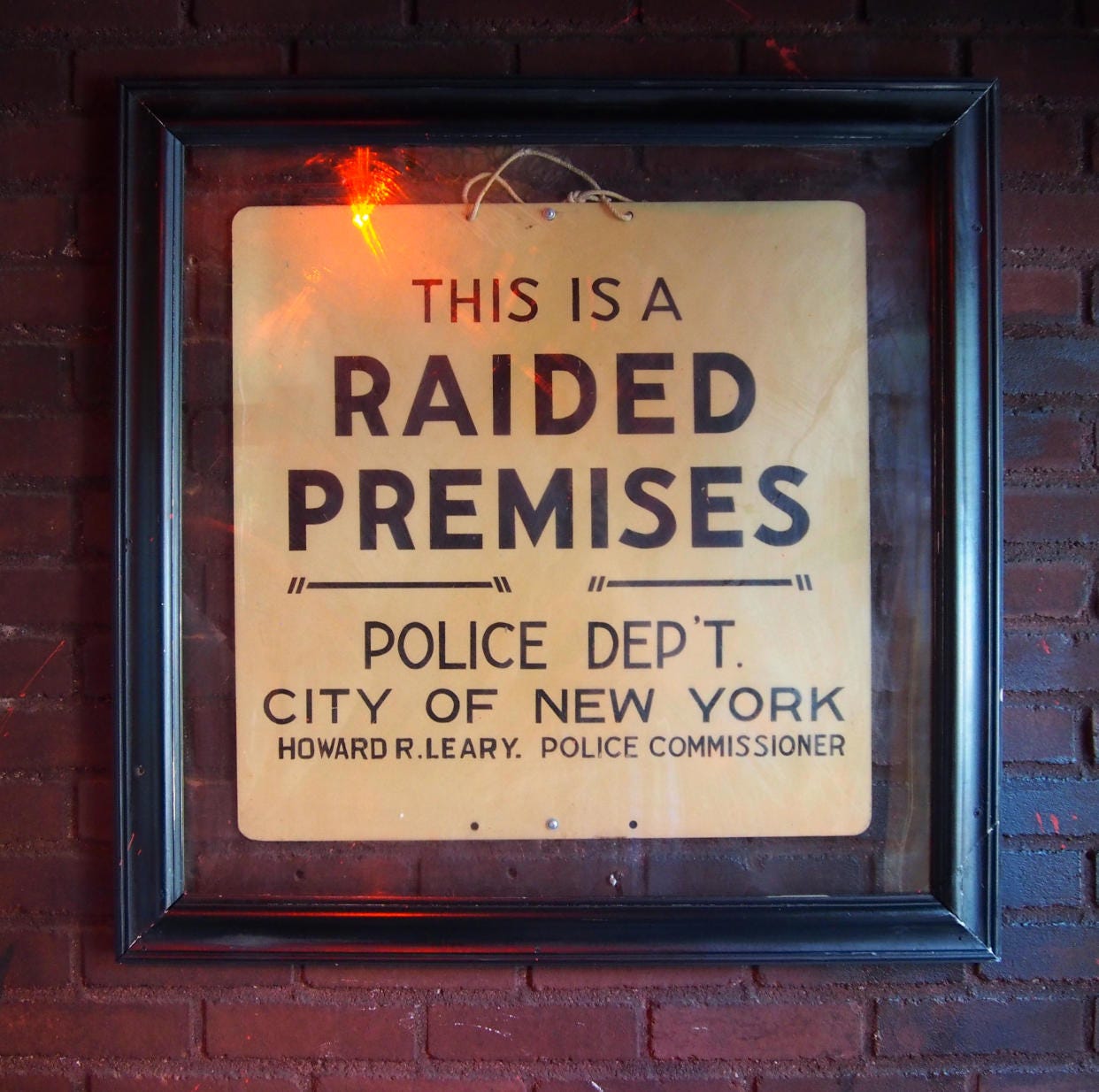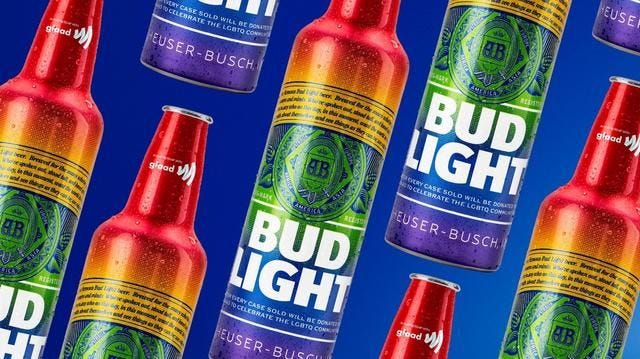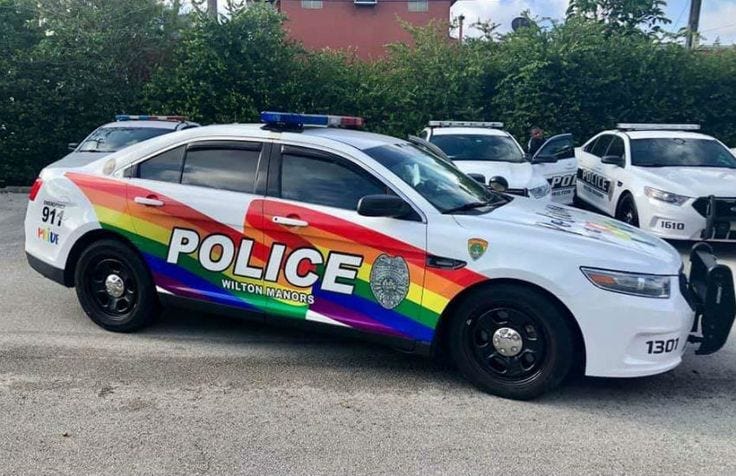Several NYPD squad cars arrived on June 28th, 1969, around closing time at a Greenwich Village dive bar.
But police weren’t responding to an assault or looking for underage drinkers.
Instead, their job was to shut the business down because the Stonewall Inn didn’t have a liquor license. But the booze charge was a secondary infraction.
The real crime was that the Stonewall Inn was a gay bar.
And so, as they’d done before, the police walked inside, announced the raid, and started arresting or citing people, basically for being gay on a Saturday night.
But during the process, the Stonewall patrons collectively decided they’d had enough.
Enough with the police harassment.
Enough with the state and local laws targeting LGB people of New York.
Enough with being unable to hold hands with a member of the same sex publicly or work for the federal government.
And enough with the medical community writing LGB people off as mentally defective.
But this flashpoint wasn’t your typical bar fight.
A nine-day riot ensued in what we now call The Stonewall Rebellion.
Looking back from 2023, so much has changed.
Or has it?
Has the LGB community thrived since that night?
Or has the movement regressed to the Stonewall Age?
Yesterday’s Pride

The Stonewall Rebellion, or Stonewall Riots, is widely considered the catalyst for the modern gay rights movement, inspiring organizations like the Gay Liberation Front, Human Rights Campaign, and the Gays and Lesbians Alliance Against Defamation (GLAAD).
On the first anniversary following the unrest, thousands gathered in Manhattan and marched to the scene of the crime on what organizers called the “Christopher Street Liberation Day March” (after the street on which the bar resided), chanting, “Say it loud, say it proud.”
And so the annual summer Pride Parade was born.
While LGB remained unpopular legally, the movement gained traction, and eventually, anti-LGB laws were replaced with anti-discrimination laws.
Soon, social acceptance spread from fringe bars and nightclubs to liberal cities and states like Seattle and California.
And for the last few decades, most people have likely known at least one gay person.
Of course, many people take moral issues with homosexuality, and discrimination will always exist to some degree for all minorities.
But hiring or harassing people based on sexual orientation was not only unpopular culturally, but illegal.
And LGB people were a part of everyday life. Gay people were in movies. They lived next door, worked on the assembly line, and served in countless other roles.
Yet just like in 1969, it seems there was another cultural shift recently.
Today’s Pride

The Bud Light boycott may be the most successful conservative boycott ever.
Since the Mulvaney blunder, Anheuser-Busch continues to lose money and resorted to subsidizing distributors to carry their product.
Anheuser Busch’s CEO and ex-CIA operative Brendan Whitworth appeared on the Today show this week but only did more damage as he wouldn’t pick a side.
But how did this happen? See those rainbow bottles above?
They’re from 2019. Do you remember anyone caring?
No.
Sure, some beer drinkers cracked jokes while perusing the grocery aisles, and surely others refused to purchase such a product.
But whatever degree of protest existed, it didn’t register culturally or financially.
So what happened?
Is society becoming less tolerant of LGB?
Are extreme right-wing MAGA Republicans really a threat?
Or is it more likely a cult took over the LGB movement after adding the ‘T’ and everything else?
Why did Pride devolve from equality to kink?

Why won’t the movement recognize gender dysphoria vs. people that choose to live life differently and leave kids out of it?
And how did LGB awareness go from being accepted to mandated?
Alternative Motives
That’s because a cult took over the LGB movement, from corporations, politicians, and schools, to Hollywood.
Do brands really care about LGB rights, or is it more likely they use the movement as a marketing campaign?
Are we naive enough to think politicians care about equality? Or are they more likely to use new laws and policies as weapons against political opponents? Such as they’re trying to do in Michigan.
Do moviegoers want to see LGB in every story, or are producers just trying to sell tickets or streaming subscriptions?
Do doctors and Big Pharma want to push sex changes because it’s what’s best for the patient, or is it about creating customers for the necessary drugs and maintenance required for life following such an operation?
And do we really think the alphabet mafia surged because young people are more comfortable coming out?
Or is it more likely that people, especially kids, are drawn in because they’re confused, and know it’s a protected class where they get attention, something kids lack?
Are teachers interested in what’s best for students? Or do they retain the same fear of not fitting in as when they were in school?
Is saying “they’re coming for your children” homophobic paranoia?
Are schools really banning LGB-friendly books, or are they censoring adult content in books like Gender Queer or This Book Is Gay, which instructs readers how to use adult hookup apps?
Found in an Illinois school:






But why would a cult take over the LGB community and target children?
Because that’s how communism and socialism work.
They prey on society’s woes, create a social revolution, then gain the support of the people to make laws that reward few and kill millions.
It’s not a paranoid prediction or a conspiracy theory.
It’s human nature. See Russia, Germany, and Italy, for example. The history books prove it.
Full Circle

I know I’ve only seen a small fraction of Pride 2023 through the comfort of my computer or phone.
But what I did see this year isn’t a fair representation of LGB people.
When actual bigots severely beat Matthew Shepard and left him to die in 1998, people mourned, gay or straight.
It was terrible. He was just another kid like the rest of us. I don’t think he or the countless others killed, attacked, or discriminated against would appreciate what this cult does to their movement’s original intent.
And I don’t think the people of the Stonewall Inn would imagine in a million years that the tables would turn one day.
That one day, it would be a rainbow-themed police car pulling up to a seedy rural bar where straight people seek refuge from an intolerant world and announce a raid of the premises.
And just like the patrons of the Stonewall, people will eventually stand and say, ‘Enough.’





